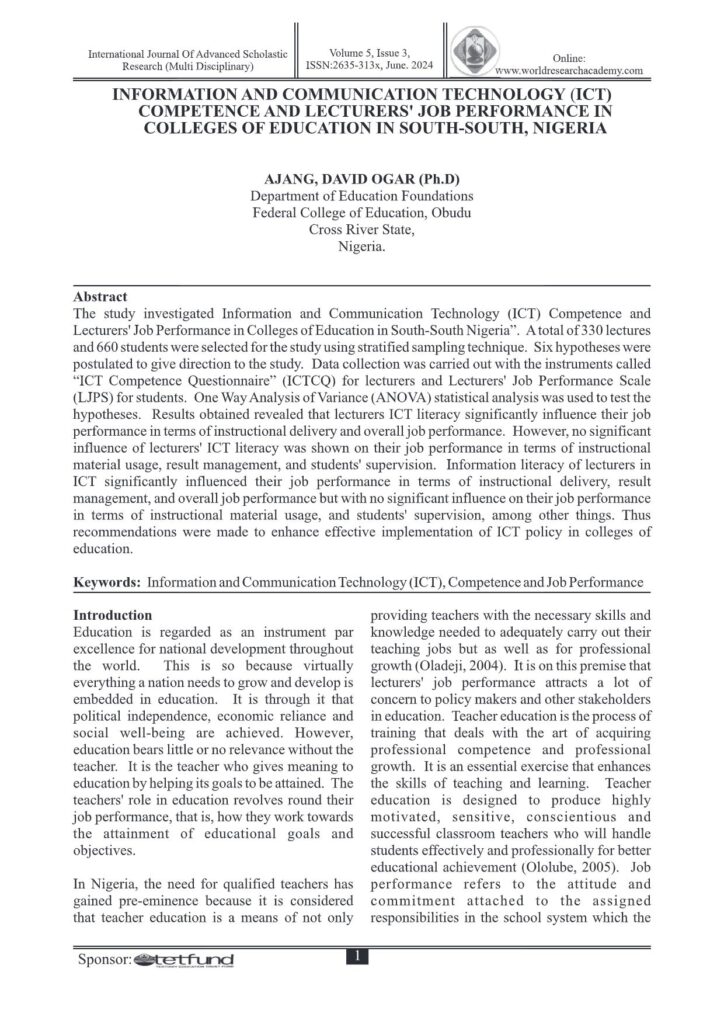BY AJANG, DAVID OGAR (Ph.D)
DEPARTMENT OF EDUCATION FOUNDATIONS FEDERAL COLLEGE OF EDUCATION, OBUDU CROSS RIVER STATE, NIGERIA.
Introduction
Education is regarded as an instrument par excellence for national development worldwide. This is so because virtually everything a nation needs to grow and develop is embedded in education. It is through it that political independence, economic reliance, and social well-being are achieved. However, education bears little or no relevance without the teacher.
The teacher gives meaning to education by helping attain its goals. The teachers’ role in education revolves around their job performance, that is, how they work towards the attainment of educational goals and objectives.
In Nigeria, the need for qualified teachers has gained pre-eminence because it is considered that teacher education is a means of not only providing teachers with the necessary skills and knowledge needed to adequately carry out their teaching jobs but also for professional growth (Oladej1, 2004). It is on this premise that lecturers’ job performance attracts a lot of concern from policymakers and other stakeholders in education.
Teacher education is the process of training that deals with the art of acquiring professional competence and professional growth. It is an essential exercise that enhances the skills of teaching and learning. Teacher education is designed to produce highly motivated, sensitive, conscientious, and successful classroom teachers who will handle students effectively and professionally for better educational achievement (Ololube, 2005).
Job performance refers to the attitude and commitment attached to the assigned responsibilities in the school system which the………………………………………… READ MORE

